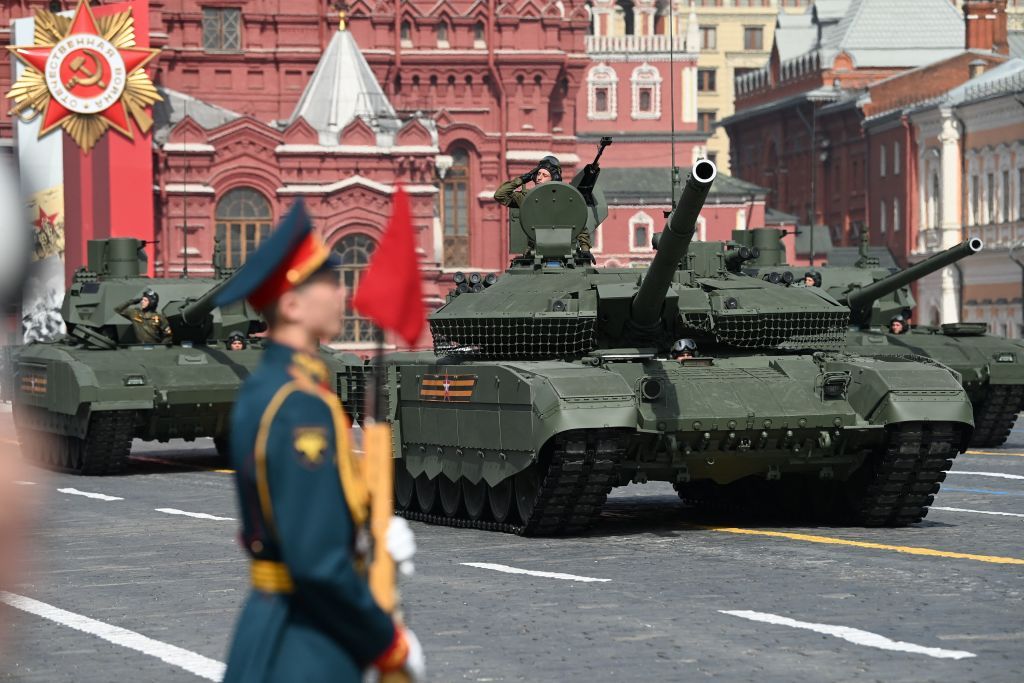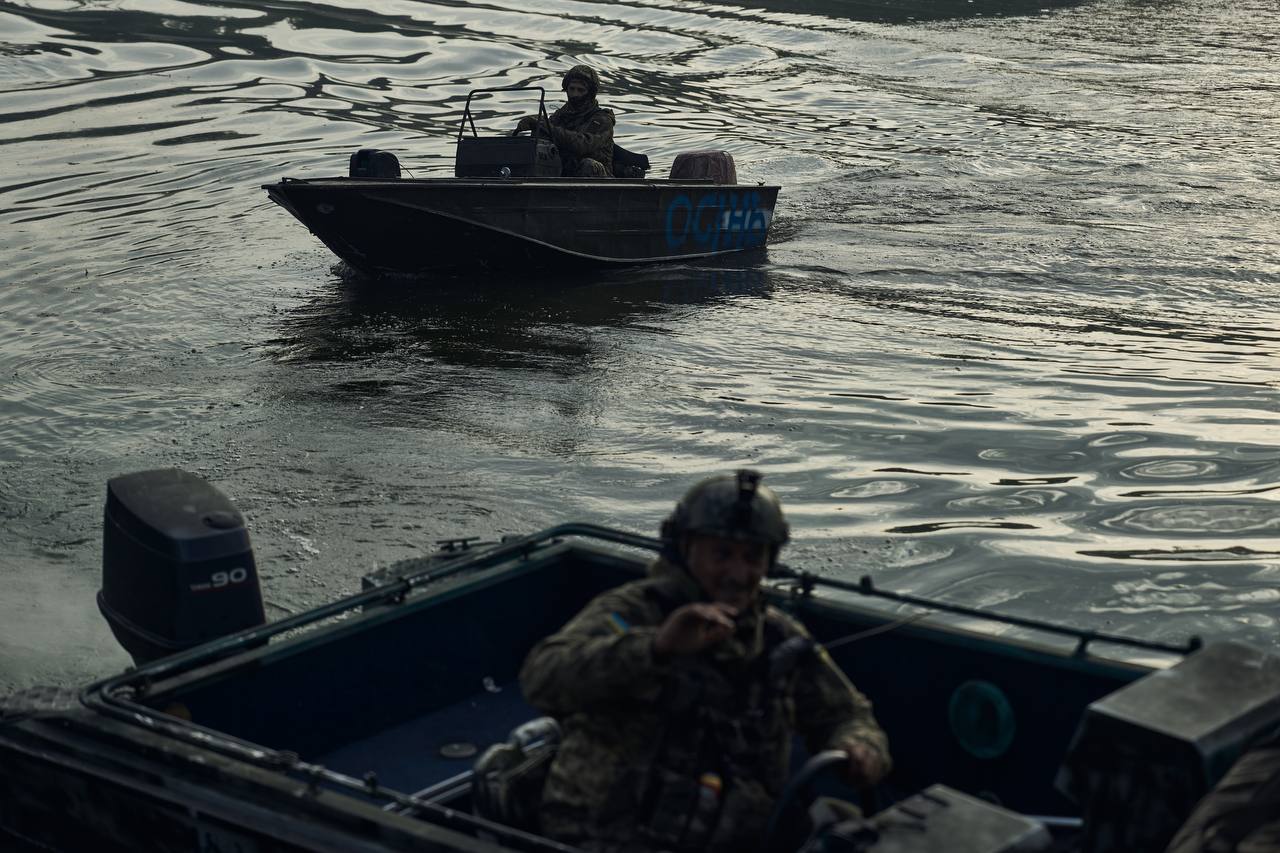Belarus Weekly: 4 Russian kamikaze drones fly deep into Belarusian airspace over past week

Belarus dictator Alexander Lukashenko claims he withdrew troops from the Belarus-Ukraine border to “de-escalate.”
Four Russian kamikaze drones entered Belarusian airspace over the past week.
NATO warns that deepening military integration between Russia and Belarus undermines regional stability and alliance defenses.
Media reports of disturbances at the Belarus-Poland border linked to Poland's efforts to end the border migration crisis by putting economic pressure on Lukashenko.
Latvia bans entry of Belarusian-registered passenger cars amid new EU sanctions.
Amnesty International urges immediate release of Nobel Laureate Ales Bialiatski due to health concerns.
Lukashenko claims withdrawal of troops from Belarus-Ukraine border
Belarusian dictator Alexander Lukashenko ordered the withdrawal of Belarusian troops from the country’s border with Ukraine at the meeting with top military officials on July 13, state-owned news outlet BelTA has reported.
The border tensions rose in late June as Belarus deployed troops and multiple-launch rocket systems (MLRS) and put its border guards on high alert after a series of alleged “security incidents.”
The Belarusian State Border Committee accused Ukraine on June 20 of concentrating heavy weapons at the border.
Later, on June 28, Colonel Vadim Lukashevich, a high-ranking Belarusian military official, accused Ukraine of setting up explosives and military equipment near the border in preparation for assaults and terrorist attacks. Belarusian border guards also reportedly received information about pro-Ukrainian Russian fighters in a nearby area.
The Ukrainian State Border Guard Service spokesperson, Andriy Demchenko, refuted the allegations, saying they were part of a Russian-supported “information operation.”
The Kremlin said on July 1 that the Belarusian military saw the buildup at the border as a “cause for concern.”
During his July 13 meeting with senior Belarusian military officers in Luninets, Brest Oblast, Lukashenko said the situation had stabilized, and the Ukrainian army had withdrawn its troops. He attributes this to “certain work” having been carried out by Belarusian defense forces.
Belarus’ Defense Minister Viktor Khrenin told BelTA that the troops began withdrawing to their regular barracks immediately after the meeting.
The Ukrainian Security and Defense Council’s Center for Countering Disinformation said in May that it predicted the launch of a new Russian psychological operation focused on the idea that Belarus may open a new front in the north of Ukraine, aimed at “stirring up mass panic” in Ukrainian society.
“We expect a series of provocative statements by the top leadership of Russia and Belarus threatening Ukraine soon,” the statement said.
Despite not committing his troops to the battlefield, Lukashenko participated in Russian nuclear blackmail and provided the Russian military with territory and infrastructure to carry out attacks on Kyiv in the early days of the all-out invasion. The shared border between Belarus and Ukraine exceeds 1,000 kilometers.
Four Russian kamikaze drones enter Belarusian airspace in a week
At least four Russian Shahed kamikaze drones that had been launched at targets in Ukraine veered off course and entered deep into Belarusian airspace between July 11 and July 16.
Two Russian Shahed kamikaze drones entered Belarusian airspace on July 16, the Belarusian Hajun monitoring group reported. The first Russian drone, which had been sent to attack Ukraine, instead flew over 60 kilometers into Belarus at around 4 a.m. local time. No interception attempts were reported.
The second drone entered Belarus at around 8 a.m., flying towards Naroulia. According to Belarusian Hajun, it exploded some 120 kilometers north of the Ukrainian border. A Su-30 fighter and Mi-24 helicopter were sent to intercept the drone, but no official reports of the drone being downed were issued.
The Ukrainian Air Force confirmed that two Shahed drones had been downed in the July 16 attacks, while another two were “locally lost” in the airspace of Belarus.
Previously, Ukrainian Air Force Commander Mykola Oleshchuk said on July 13 that five drones had been used in the attack against Ukraine. While four were shot down, the fifth “left the airspace of Ukraine in the direction of the Homel region of Belarus,” he said in a post on Telegram.
The Belarusian Hajun monitoring group later reported that the drone had flown 350 kilometers “over Homel and Zhlobyn, entered the Mahiliou region, and then Minsk region.” The drone took three hours to fly the route, which stretched across almost the entire country. The drone’s final whereabouts remain unknown.
A Belarusian Mi-24 helicopter and Su-30 fighter jet were reportedly scrambled to intercept the drone before it “presumably flew to Vitebsk.”
The first Shahed kamikaze drone was reported to be flying in Belarus on July 11. The drone targeting Ukraine entered Belarusian airspace in the southern Homel region over the town of Loyew, and then exited back into Ukraine’s airspace an hour later over the Polesie State Radioecological Reserve. A Mi-24 helicopter of the Belarusian Air Force was deployed to the area during the incident.
No Belarusian official has commented on the incidents. While speaking to his military officials on July 16, Lukashenko did not mention or comment on the drone incursions into Belarusian airspace.
Since the inception of the full-scale invasion of Ukraine in February 2022, Belarus, a staunch Kremlin ally, has been conducting military inspections and drills across the country involving all types of forces, including alleged nuclear weapons drills.
Belarus is also hosting joint training exercises with Chinese soldiers, billed as “anti-terrorist training,” until July 19. This comes after Belarus’ accession to the Shanghai Cooperation Organization, Eurasian political, economic, and defense organization led by China and Russia.
NATO: Belarusian, Russian integration has negative implications for regional stability
The deepening military integration of Russia and Belarus is destabilizing the region, according to the NATO Summit Declaration issued on July 10 during the three-day NATO summit in Washington.
“Russia’s deepening political and military integration with Belarus, including the deployment of advanced Russian military capabilities and personnel, has negative implications for regional stability and the defense of the alliance,” the statement reads.
The declaration states that Minsk is enabling Russia’s war against Ukraine by providing territory and infrastructure.
The NATO leaders condemned “Russia’s irresponsible nuclear rhetoric and coercive nuclear signaling,” which includes the reported placement of its nuclear weapons in Belarus. However, the declaration states the alliance’s willingness to maintain channels of communication with Moscow to “mitigate risk and prevent escalation.”
The three-day NATO summit concluded on July 11 with the launch of the Ukraine Compact, which provided Ukraine with $43 billion in aid and pledged support for its defense needs. The declaration also highlights China’s role as a “decisive enabler” of Russia’s war efforts and notes North Korea’s and Iran’s direct military support to Russia. The 32 NATO allies called on all countries not to facilitate Russia’s aggression.
Latvia bans entry of Belarusian passenger cars
Starting July 16, passenger cars registered in Belarus will no longer be allowed to enter Latvian territory from Belarus or Russia, Latvian State Revenue Service reports.
The new regulation suggests that persons traveling from Belarus in their own transport will have to return to Belarus. Failure to comply may result in the confiscation of the vehicle. The entry ban, however, does not apply to transport for Minsk’s diplomatic and consular missions.
Latvian authorities said the restrictions were introduced following the announcement of the EU’s eighth sanctions package against Belarus, which was introduced on June 29 and aligned restrictions against Belarus with those already imposed on Russia.
However, Belarusian democratic leader in exile Sviatlana Tsikhanouskaya claimed that Latvia’s decision had been “hasty and harmful.”
“It hits people, not the regime,” Tsikhanouskaya said. “The border with the EU is the border with the free world. It should be open for Belarusians who do not support the regime and see the future of their country in Europe.”
Tsikhanouskaya’s office reported that the restrictions will not apply to regular bus transit.
The decision refers to an article of Council Regulation (EU) 2024/1865, which lists passenger cars as being among goods prohibited in the EU if they “originate or are exported from Belarus.” The regulation, however, reserves the right for the member states to allow the entrance of such goods if they are intended strictly for personal use by individuals traveling to the EU and their immediate family members.”
On the introduction of the latest, Poland, which currently hosts one of the largest Belarusian diasporas, said that Belarus-registered vehicles will only be allowed to cross the border if driven by their owners.
Earlier, Latvia and other EU member states banned cars with Russian license plates from entering their territories.
Belarus faces transit backlash as Poland seeks to end migration crisis on its border
Belarus accused Poland of halting cross-border cargo transit at the Kukuryki-Kazlovichy checkpoint on July 10, a claim Poland denies, attributing the delays to new sanctions imposed on Belarus by the European Union for aiding Russia in its war against Ukraine.
Disruption to cargo transit between Belarus and Poland was reported in Polish and Belarusian media in connection to Poland’s diplomatic efforts to pressure Lukashenko to halt the migration crisis he had engineered at Poland’s border.
Citing Polish diplomatic sources, RMF FM reported on July 4 that the Polish authorities had paused the railroad transit from Belarus at the Malaszewicze terminal, the main overground shipping route from China to Europe.
The report suggests that while the official cause of the slowdown was attributed to routine control activities to protect the EU customs area, the Polish authorities were using the measure to pressure the Belarusian regime into halting hybrid attacks on its border.
The Kyiv Independent cannot independently verify this claim.
Poland stepped up its efforts to end the artificial migration crisis after a Polish soldier was stabbed to death when trying to stop an illegal border crossing attempt. Polish Foreign Minister Radoslaw Sikorski said on June 22 that Warsaw has not ruled out a full border shutdown.
Polish President Andrzej Duda, meanwhile, raised the migration crisis issue and the corresponding cross-border traffic problems with Chinese leader Xi Jinping during his visit to Beijing on June 24.
Experts believe that shutting down cargo flows is the main tool in the Polish arsenal when dealing with Belarus. Belarusian democratic activists have supported the closure of the key Kukuryki-Kozlovichi cargo crossing to pressure Lukashenko to release political prisoners.
Poland shut down two border crossings with its neighbor amid intensifying tensions. It says it has thwarted 17,000 illegal border crossing attempts from Belarus since the beginning of 2024. Polish officials regard the migration crisis as a hybrid warfare attack on the European Union.
Amnesty International calls for immediate release of Nobel Peace prize laureate Ales Bialiatski

Human rights organization Amnesty International on July 12 called on Belarus to immediately release Nobel Peace Prize Laureate Ales Bialiatski amid the reports of his deteriorating health.
“As we prepare to mark three years since the detention of Ales Bialiatski and his colleagues, we remain deeply concerned about their wellbeing,” Marie Struthers, Amnesty International’s director for Eastern Europe and Central Asia, said.
“We once again demand their immediate and unconditional release, and urgently request they are granted immediate access to adequate healthcare and their lawyers and relatives.”
Bialiatski, who is serving a 10-year prison term, was transferred to a penal colony in the northeastern city of Horki, where the administration refused to accept his medical supplies, leaving his state of health – already damaged by a previous politically motivated period of imprisonment – in danger.
Bialiatski founded the Viasna Human Rights Center in 1996 to provide legal help to those suffering from the regime of Belarusian dictator Alexander Lukashenko and document its misconduct. He received his first politically motivated prison term in 2011.
Since 2020, the Viasna Human Rights Center has been recording cases of administrative and criminal persecution of Belarusians who took part in protests after the fraudulent presidential elections of that year.
On Feb. 16, 2021, Belarusian law enforcers searched the main office of Viasna, alleging the organization had financed the 2020 protests. On July 14, 2021, Bialiatski and several of his colleagues were arrested.
Bialiatski’s wife, Natallia Pinchuk, has said she is uncertain if she will see her husband again. “Given the prison conditions, a ten-year term is a life sentence,” she said.
The unprecedented wave of political repression launched after the fraudulent presidential elections in 2020 continues to this day. The Viasna Human Rights Center currently recognizes around 1,400 political prisoners.
Six prisoners have died in detention, and 250 more are included on the Belarusian opposition in exile’s “humanitarian list” due to their poor health conditions.













